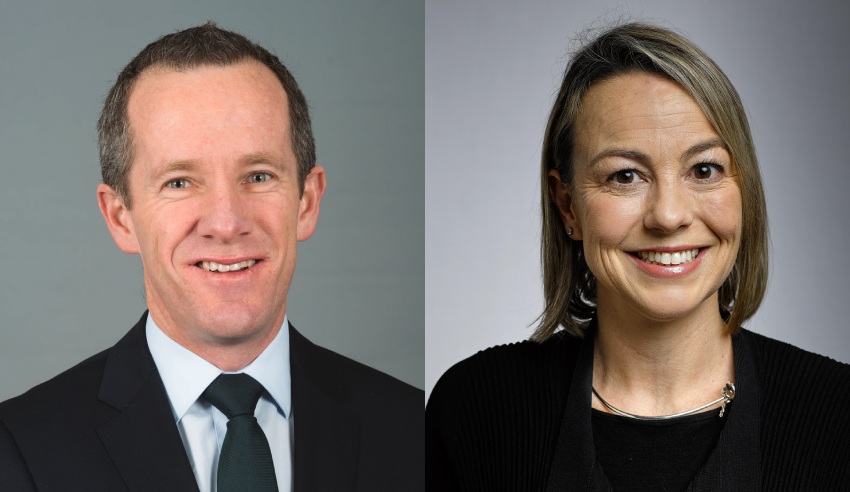Sitting atop the Top 25 Attraction Firms ranking for this year, Herbert Smith Freehills spoke with Lawyers Weekly about the importance of actively listening to staff, among other strategies, to be an employer of choice.

Earlier in October, Lawyers Weekly – in partnership with Momentum Intelligence – revealed the firms deemed most attractive by legal professionals across the country. Now in its seventh year, the Top 25 Attraction Firms ranking is a key element of the Legal Firm of Choice Survey, which gauges the most sought-after private legal practices Australia-wide.
In conversation with Lawyers Weekly, HSF executive partner (east) Andrew Pike and human resources director Alissa Anderson said that having all staff involved in firm-wide decision-making has been a “really important piece” of its broader strategy in the past year.
“We’ve done a lot of work over the last two years to stay close to our people through a variety of mechanisms, like open communication and engagement surveys. We’ve also got a people forum in Australia where we have got a broad cross-section of people from across the firm acting as a sounding board for a lot of the decisions of the firm to make sure that we are meeting the needs of our people,” Mr Pike outlined.
“We wanted to curate the organisation so that we can make the best environment of it. If you give people a voice, and you listen to that, and you follow it, great things happen.”
Ms Anderson agreed, noting that the firm was “very deliberate” during the pandemic about emphasising things that are important to the broader workplace culture and how the firm wants to look in a post-pandemic environment.
It has been important, she said, to have HSF staff reflect on the firm’s performance with regard to people and culture during the age of coronavirus and shape future direction based on those insights.
It was, Mr Pike surmised, about “trying to understand and deliver on what our people wanted”.
He is “acutely aware”, he mused, that “some of the best ideas in the organisation come from not just more junior staff but also people who have diverse perspectives and diverse backgrounds”.
“We continue to be keen to listen to and respond to everybody in the organisation, including our really strong professional support functions – a group which is increasingly becoming more and more relevant to clients,” Mr Pike identified.
As such, how HSF moves beyond thinking of itself as simply a collective of lawyers is essential for its success moving forward, he deduced.
Constant evolution of how the firm supports its staff is also a critical consideration, Ms Anderson added.
“In the development of our agile working strategy, we surveyed our staff to get a sense of the way they want to work in the future. We fundamentally redesigned our learning programs to be fit for a more agile working environment. So, we made learning sessions short and sharp, as opposed to long days in a room. Making the training online had the added benefit of bringing groups of people together, not only across different offices within Australia but across offices in our global network,” she detailed.
Making such changes to the ways that the firm operates will be increasingly important but also exciting moving forward, Ms Anderson went on.
Looking ahead, she said, the firm will “continue to build on our already very positive culture, truly listening to what our people are saying, thinking about the future of work and how we’re going to adapt the way we work, but also adapt to what our people are telling”.
“We will continually stay close to our people and our clients to make sure that we maintain a positive work environment culture,” she said.
When asked about the “Great Resignation” – the supposed looming mass exodus of employees from their current roles as the market moves forward into the post-pandemic landscape – Mr Pike said he wasn’t sure that he necessarily buys into the argument that there will be a bounty of departures from law firms at the big end of town.
Regardless, he added, firms like HSF will have to stay at the top of their games.
“We have to keep hiring the best people, not compromising our standards and coming back to that virtual circle I was referring to earlier. And pleasingly, for me, we are seeing a lot of really quality people joining our organisation because they want to work with the best partners and they want to do the best work,” he said.
HSF, he submitted, is “not being complacent”.
“We’ve just gone through what is the best part of a two-year experiment that’s been forced on us by health factors, that the opportunity that we’ve got over the next period is to work out how we work with our people to curate a really fantastic new normal for our culture,” Mr Pike advised.
This will partly involve, he said, “going back to some of the basics that we know have always stood true” whilst also taking on board what has been learned during the last two years.
“I’m really excited that when we do that well – and it’s a ‘when’, not an ‘if’ – we’ll be in a really strong spot to keep the firm in a leading position,” Mr Pike concluded.
Last week, Lawyers Weekly reported on how graduates and young lawyers feel about their employers’ performance across various metrics, as well as how happy lawyers across the board are with their remuneration.

Jerome Doraisamy is the managing editor of professional services (including Lawyers Weekly, HR Leader, Accountants Daily, and Accounting Times). He is also the author of The Wellness Doctrines book series, an admitted solicitor in New South Wales, and a board director of the Minds Count Foundation.
You can email Jerome at: